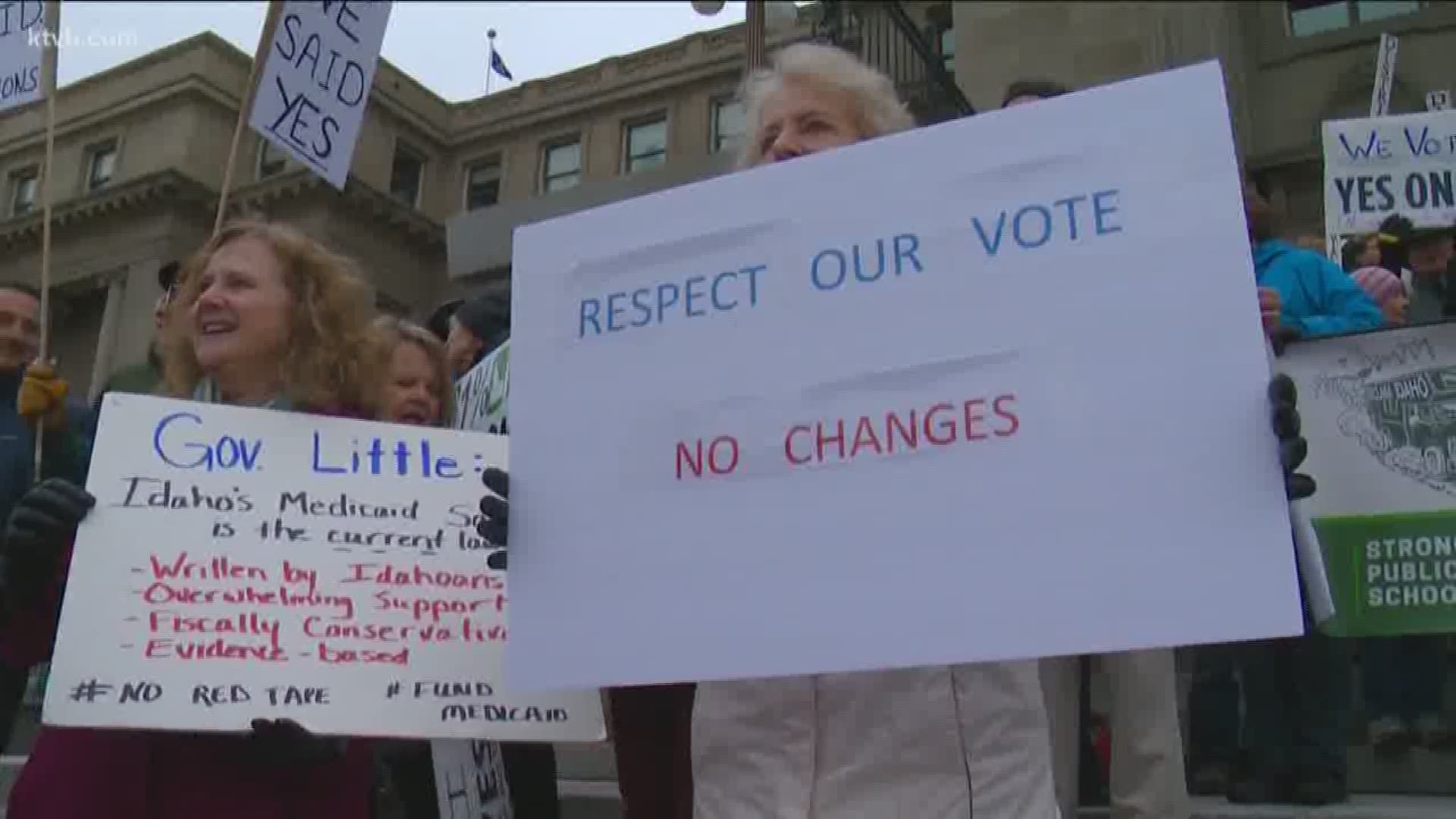BOISE, Idaho — Medicaid expansion is still an ongoing issue in the Idaho State Legislature.
On Friday, the House will hear public testimony about a new bill that, among other components, looks to add a work requirement for Medicaid eligibility.
The bill is sponsored by Rep. John Vander Woude (R – Nampa) who said he feels this bill is necessary to make sure Medicaid expansion is as efficient as possible.
“My intention is to try and make sure, fiscally, it’s responsible for the state and it still can help people,” Vander Woude said.
The bill would have similar requirements to those of SNAP, or food stamp assistance. To be eligible, Medicaid recipients would need to work at least 30 hours per week.
Vander Woude said the goal of the bill is to help people eventually become less dependent on government programs.
“I think we wanted to do it Idaho’s way – that’s what the governor has said, he wants an Idaho way to expand Medicaid,” Vander Woude explained. “I think this is a good Idaho way – it has some accountability but it also has some places I think we can help people become on their own and help them move up the ladder.
“Work requirements can be taking classes, getting some improvement to try and get a better paying job, and stuff like that - or also any other type of training or applying for work and so on,” he added.
There are several exemptions to the bill, including if someone is a caretaker. Vander Woude said one difference between SNAP requirements and his bill is the exemption if a child is living in the home. Under SNAP requirements, it’s a child under six years old that meets the exemption. Under Vander Woude’s bill, the age would be 18.
The bill has been getting some backlash. Supporters of Medicaid expansion feel that the bill is “basically irresponsible.”
“The work requirement provision would basically cost taxpayers millions of dollars; add bureaucratic red tape; create a secondary health care gap, which is the problem we’re trying to solve right now with Medicaid expansion; and most importantly, there is no data to support that work requirements actually work,” said Tracy Olson, Ada County co-leader for Reclaim Idaho.
Olson said there would be consequences to taxpayers because there would be costs to set up the work requirement programs, and those in that secondary health gap would still end up paying high healthcare costs – like emergency room visits – without the help of Medicaid.
“This is an exercise in futility," she said. "It is not necessary, and it’s a real reckless thing to do with taxpayer money."
Statistics from the Idaho Department of Health and Welfare show that approximately 91,000 people would be eligible for Medicaid expansion and that between 6,500 and 13,000 people would fall under that work requirement, if the bill passes.
“So it’s really a small percentage of the 91,000 people that are eligible,” Vander Woude said.
But Olson feels if that’s the case, then what’s the point of his bill?
“What I would ask is, if it’s only a small percentage, there’s a huge price tag on those people so it’s going to cost us millions of dollars and it’s only going to affect a small amount of people and to me, that is a complete waste of money,” she said.
Vander Woude said unlike other programs like Your Health Idaho, this bill would allow for people to regain work requirement eligibility more quickly.
“Even if they don’t meet the work requirements, they only go off for two months and they can come right back on again,” he said.
Olson said it’s not as simple as it seems when it comes to helping people become independent of government programs.
“There’s the working poor,” she said. “And there are facts about the working poor. They are in low-wage jobs, which kind of creates a turn of events. They may go in and out of a job because of hours, they may not get the hours they need. They may work in an environment or a town where there aren’t a lot of job opportunities.”
Olson said by potentially being able to go off and on, it messes with people’s Medicaid status and can cause inconsistency, doing more harm than good.
According to Olson, another problem with Vander Woude’s proposed bill is that it goes against what the people voted for in November 2018.
Sixty-one percent of Idahoans voted to pass the expansion.
“This isn’t what people voted for,” Olson said. “This isn’t required to make Medicaid expansion happen.”
Vander Woude said Prop 2 just called for passing Medicaid expansion – it did not specify to pass it without any restrictions or sideboards.
Other things the bill would also look at doing is providing a waiver to allow those with mental disorders to qualify for Medicaid coverage.
It would also look to add a waiver involving Your Health Idaho. Vander Woude said it would affect those between the 100 and 138 percent marks. The waiver would allow those people to choose whether to stay on private insurance or go on Medicaid. He said if the waiver is not approved, it would require all of them to go on Medicaid.
Olson said that waiver would need federal approval, which she doesn’t believe it would get.
“I don’t see that happening because there isn’t a state that has gotten that approval – that waiver approval,” she said.
There will be a public hearing on the bill Friday morning at 8 a.m. and Vander Woude said it could last a long time. He said depending on how the testimony portion goes, it’s possible the House doesn’t vote the same day.

